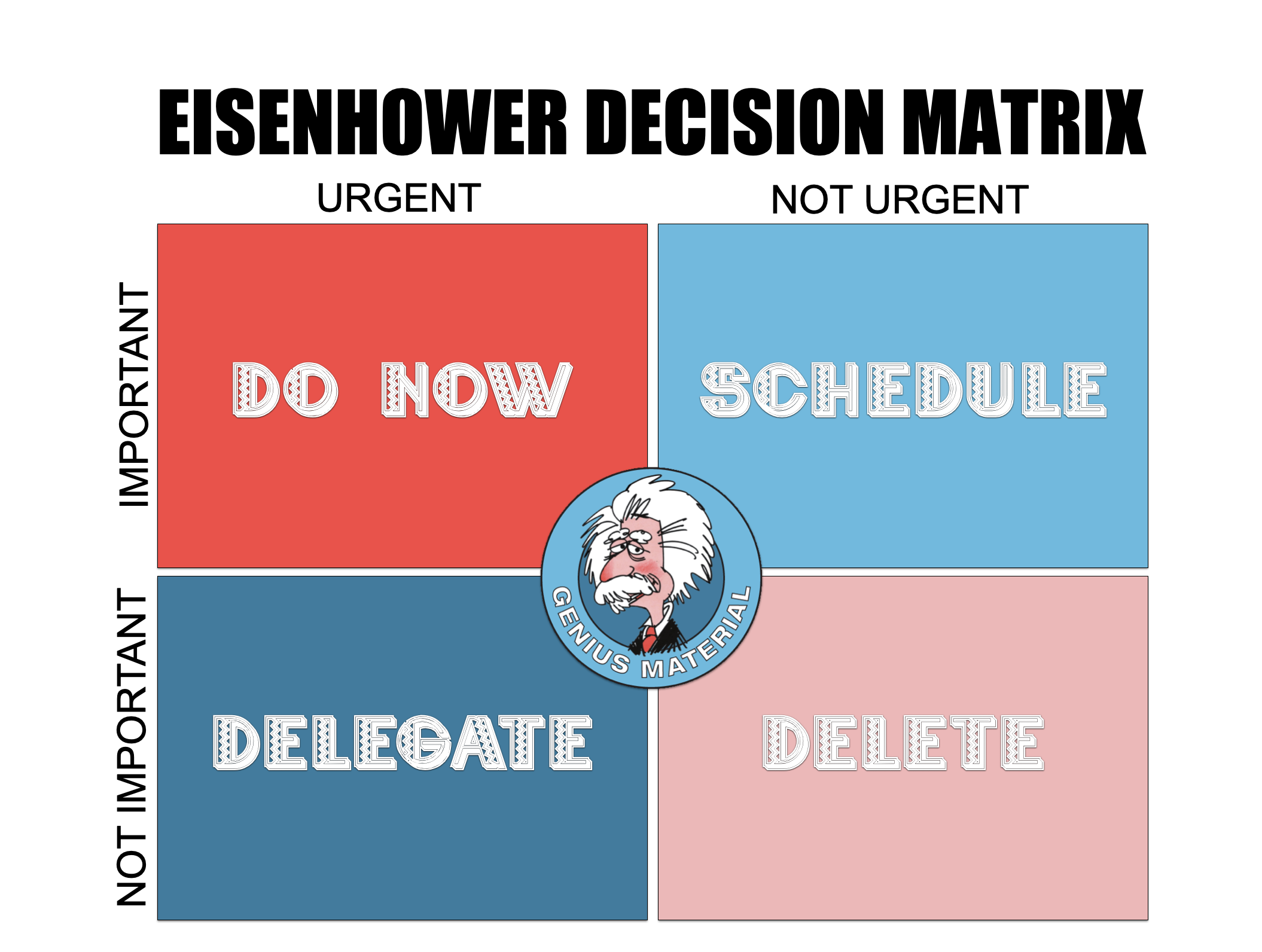The Eisenhower Matrix, also known as the Eisenhower Decision Matrix or Urgent-Important Matrix, is a time management and prioritisation tool that helps individuals organise tasks based on their urgency and importance. It was popularised by former U.S. President Dwight D. Eisenhower, who was known for his exceptional time management skills.

The matrix categorises tasks into four quadrants:
- Urgent and Important (Do First): Tasks in this quadrant are both urgent and important. They require immediate attention and should be your top priority. These could include time-sensitive compliance exam preparation tasks, critical client needs, or important regulatory updates that need to be addressed promptly.
- Important but Not Urgent (Schedule): In this quadrant, tasks are important but not necessarily time-sensitive. They should be scheduled for later, allowing you to allocate time and resources to tackle them effectively. For a professional in financial services studying for compliance exams, this could include long-term study planning, skill development, or research on industry trends that can enhance your overall knowledge and capabilities.
- Urgent but Not Important (Delegate): Tasks in this quadrant are urgent but don't necessarily require your personal attention. These tasks can be delegated to others if possible, freeing up your time to focus on more crucial matters. For instance, administrative tasks, routine communication, or minor client inquiries might fall into this category.
- Not Urgent and Not Important (Eliminate): In this quadrant, tasks are neither urgent nor important. They tend to be distractions and time-wasters. It's best to eliminate or minimise these tasks to optimise your productivity. Examples could include checking non-essential emails or engaging in unproductive meetings.
Benefits for a Professional in Financial Services Studying for Compliance Exams:
- Efficient Prioritisation: The matrix helps you categorise tasks, enabling you to prioritise compliance exam preparation tasks effectively. It ensures that you focus on high-priority, high-impact tasks that contribute directly to your exam success.
- Reduced Stress and Procrastination: By clearly identifying and addressing urgent tasks, you can reduce stress and the tendency to procrastinate. This is crucial when studying for compliance exams, as there might be strict deadlines and a lot of material to cover.
- Effective Time Management: The matrix assists in allocating your time and resources wisely. Balancing urgent and important tasks with long-term study plans and skill development ensures a more comprehensive and strategic approach to your exam preparation.
- Enhanced Decision-Making: It helps you make informed decisions about what to do, delegate, schedule, or eliminate, especially when you have limited time and a demanding workload.
- Better Work-Life Balance: By eliminating or delegating non-essential tasks, you can create more space for personal time, relaxation, and rejuvenation, which is essential for maintaining focus and productivity during exam preparation.
- Long-Term Career Growth: Applying the matrix not only helps you succeed in your current compliance exams but also cultivates strong time management habits that can benefit your overall career growth in financial services.
Remember, the key is to regularly review and update your tasks within the matrix as your priorities shift, ensuring that you stay aligned with your goals and responsibilities.

